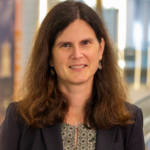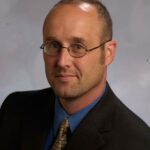New College Leadership for Fall 2022

“The Department of Physics and Astronomy is one of the largest and most research active in the college,” Del Maestro said. “I look forward to growing our academic programs and aiding my faculty in apply their unique skillsets to solve some of the most challenging problems facing the world today.”
Del Maestro’s research involves the application of high-performance computational tools and quantum field theory methods to understand how collective and cooperative states of matter can be harnessed for future quantum technologies.
Allen Dunn, professor of English, is the new head of the Department of Philosophy. Dunn has prior administrative experience as head of the English department.

“Serving as department head gives me the opportunity to see the mathematics department from a bird’s eye view, the great work and the achievements of our faculty, staff, and graduate students. Their enthusiasm, passion and diligence in teaching, research, and service radiate to me and excite me to do the challenging job,” said Feng, who is a computational and applied mathematician. “Being the department head also provides me the opportunity to be a facilitator for the faculty, staff, and graduate students to empower them to achieve more and to reach their potential.”
A numerical analyst by training, Feng’s research has been focused on developing and analyzing fast and efficient computational methods and algorithms for solving math problems from various scientific and engineering applications on computers. He has worked at the interfaces between mathematics and sciences as well as engineering and his research has been supported by the NSF continuously for 20 years.

“I look forward to helping faculty in our department work towards their research and teaching goals and celebrating their successes, which I know will be many because we have such an outstanding group of scholars and educators,” Lawrence said. “We face a number of serious challenges in the coming years, and I plan to advocate for our department at every opportunity.”

“I am excited about the opportunity to work in the unique environment that is the UT Department of Theatre and the Clarence Brown Theatre,” Martin said. “The connection of arts training with an on-campus professional theatre is rare.”

“Transitions offer an exciting opportunity to work with faculty to continue building on our strengths and think about next directions and future areas of growth,” Owens said.

“I am excited to work with the exceptional faculty we have in the political science program to prepare our students for a dynamic, complex, and more inter-connected world,” said Prins, a computational social scientist whose research focuses on the political, economic, and social drivers of violence, armed conflict, and maritime crime. Currently, he leads a research team funded by the US Department of Defense that is exploring sea-piracy and illegal fishing in the Indo-Pacific region.

“I am excited about the opportunity to support the students, faculty and staff in EEB and beyond to allow us as individuals, and as larger groups, to thrive,” Schweitzer said. “I am also excited to help create a collaborative, supportive and diverse group of people at UT with opportunities for excellence for everyone.”
In her research, Schweitzer examines the role of plant-soil linkages and feedbacks to plant and soil health, and the ecological and evolutionary importance of these linkages to both soils and plants in a changing world. The approach is focused on understanding the dynamic interplay between ecology and evolution, and between above- and belowground compartments in natural and disturbed ecosystems.

“I am really excited about the opportunity to work with the incredible faculty, students, and staff of EPS to build on past successes and develop an inclusive, strong department to train the next generation of geoscience leaders,” Stigall said. “The supportive environment here at UT in the college and among the administration makes this a really dynamic institution of which to be part.”